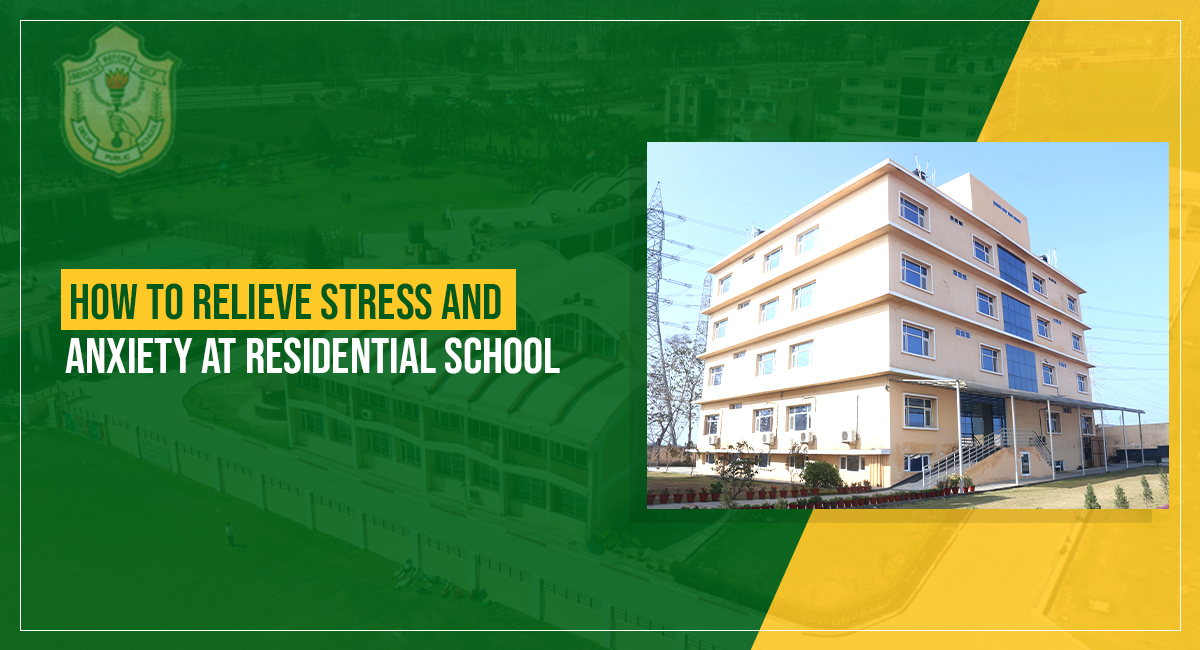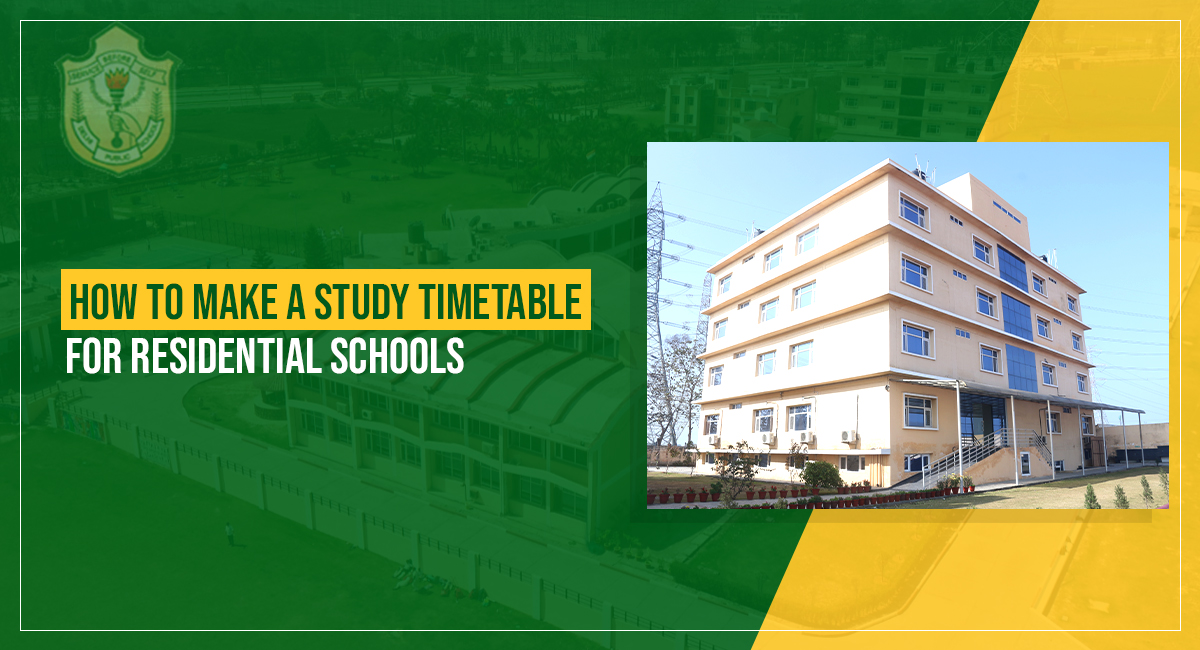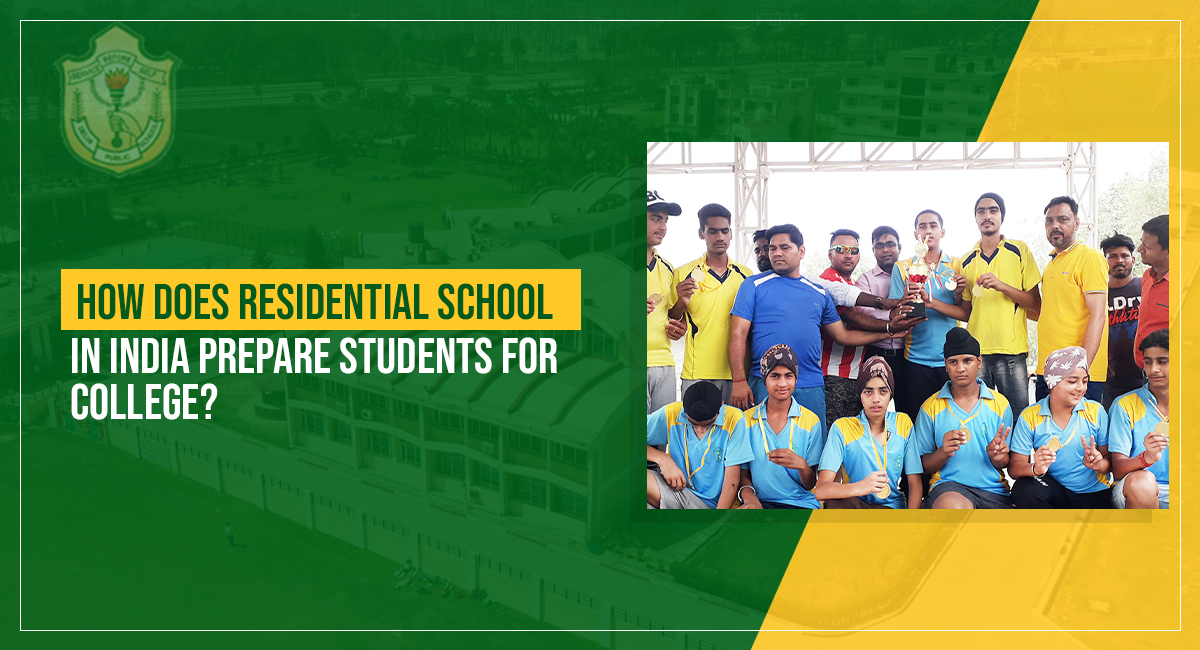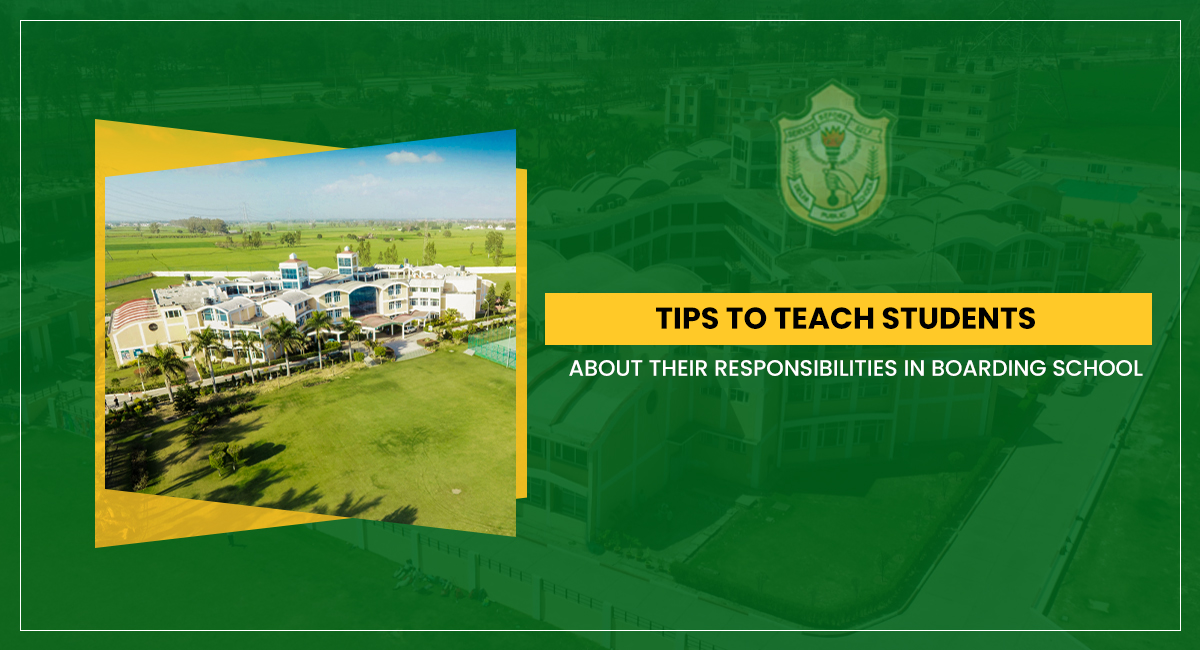While these institutions provide a conducive atmosphere for learning and personal growth, students may also encounter stress and anxiety due to various reasons. Best Residential schools in India offer a unique educational experience, combining academics with a structured living environment. In this guide, we will explore effective strategies to relieve stress and anxiety, tailored specifically for students in residential schools.
Anxiety and stress are commonplace in everyday life. Anxiety and tension are not the same thing. Stress occurs when the body or brain is under pressure, whether from external threats or internal demands. On the other hand, anxiety is a response to stress since anxiety is a state of worry, unease, or fear. In every aspect of your life, feeling anxious and stressed out causes you to feel uneasy or irritated.
Relieve Stress and Anxiety at School
In schools, a lot of pupils experience stress and worry. There are numerous reasons why students experience stress and anxiety when doing their homework, including low test scores, extracurricular activities, and many more. Students’ health, happiness, and academic performance are all impacted by stress and anxiety. The primary cause of stress and anxiety in schools nowadays is the intense competition that kids must contend with in their daily lives. Students are unable to focus on their education or other activities as a result.
- Sleep : Get adequate sleep to help lower anxiety and stress levels. Due to their hectic schedules, students are missing out on sleep, which is the primary cause of their tension and worry. However, a lack of sleep might negatively impact one’s academic ability.
- Visualization: This technique stops all bodily tension and anxiety and aids in relaxation and disengagement from stressful situations. This is a quick and practical method for lowering tension and anxiety.
- Exercise: One of the healthiest methods for lowering stress and anxiety is to exercise. Frequent exercise helps students focus on their academics by releasing all of their physical tension and worry. In addition to walking and bicycling, students can practice yoga in the morning.
- Inhaling: It is the most efficient method of lowering tension and anxiety. Taking a deep breath can help you alleviate stress and anxiety when your body senses them. Anywhere is a good place to practice stress relief breathing.
- Think Positively: Having an optimistic outlook enhances one’s physical health, interpersonal relationships, and—most importantly for students—their academic performance. Students who think positively experience less stress and worry.
- Meditation: Meditation helps to lower stress and anxiety levels by slowing down all of your rushing thoughts. The most common form of therapy is meditation, which is effective for people who experience stress and anxiety.
- Cut Back on Your Coffee Consumption: Chocolates, coffee, and tea all contain caffeine. Despite being a stimulant, large amounts of caffeine might make people feel more anxious. It varies from person to person since each person has a varied tolerance for caffeine.
- Progressive Muscle Relaxation: This method is the most effective way to reduce tension. You can apply this approach before going to sleep or while you’re unwinding. Using the progressive muscle relaxation technique, all of the body’s muscles are relaxed and tensed, and all stress is released.
- Take in some music: This is also among the most effective methods for lowering anxiety and stress. Listening to music might help you de-stress and find inner peace. Studying is made easier and stress relief is achieved with the help of music therapy.
- Eating Healthily: Mentally stimulating and anxiety- and stress-relieving foods include fruits, grains, and vegetables. Healthy and nutritious food provides us with the energy we need to excel in all that we do. After consuming nutritious food, pupils are better able to focus on their academic work.
Relieve Stress and Anxiety before Exams:
Students’ greatest worry is tests, and many of them experience anxiety before them. On occasion, a small amount of anxiety can improve their exam performance. However, students’ scores suffer when they are unable to concentrate during tests due to extreme tension and worry. Here are some tips for lowering anxiety and tension before tests.
- Be Ready: Students who are not well-prepared for their tests experience anxiety prior to them, which has an impact on their academic performance. However, students who have studied hard for their examinations feel assured and at ease when it comes time to take them.
- Organize Your Study Space: A disorganized study area can lead to tension and worry, which makes it difficult to concentrate on your studies when you are preparing for an exam.
- Takes Study pauses: Studying nonstop can lead to stress and anxiety. Taking short pauses during your studies will help you stay calm and focused during tests while also improving your exam scores.
- Self-Hypnosis: Self-hypnosis can aid students who are anxious or stressed out before an exam by relieving their tension. This is a strong and useful technique for managing stress.
- Have a Positive Mindset: Create a positive mindset before the exam by telling yourself that you “can do this” or “I can work hard.” Exam fear or tension cannot prevent you from achieving better when you approach exams with this mindset.
Conclusion:
Attending a residential school in India can be both challenging and rewarding for students. While academic excellence is a priority, it’s essential to prioritize students’ mental health and well-being. By creating a supportive environment, teaching coping strategies, promoting a healthy work-life balance, and encouraging help-seeking behavior, residential schools can empower students to manage stress and anxiety effectively. Ultimately, by fostering resilience and self-care practices, students can thrive academically and personally during their time at the best residential schools in India.










